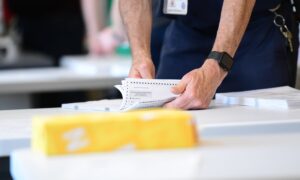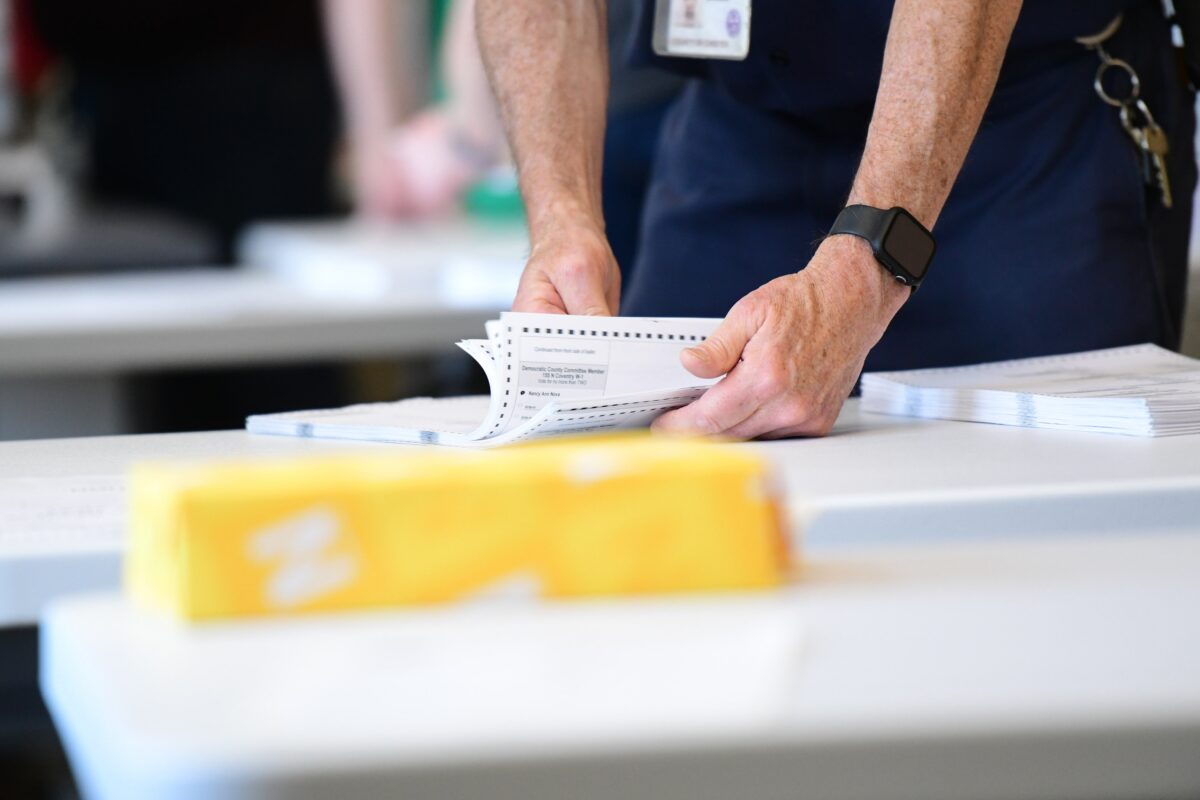
Pennsylvania has settled a federal election integrity lawsuit, saying that it has removed more than 178,000 ineligible voter registrations and promising greater transparency in its future housekeeping efforts.
As part of its settlement with conservative legal group Judicial Watch, Pennsylvania and several of its counties will publish information related to voter registration, including the total number of active voters; total number of inactive voters; and total number of voters removed from the voter rolls due to death, failure to respond to an address confirmation notice, and failure to vote in the two most recent federal general elections.
These statistics will be published on June 30 every year on the Pennsylvania Department of State’s website for the next five years, Judicial Watch said.
The federal lawsuit was originally brought in April 2020 against Pennsylvania and the counties of Bucks, Chester, and Delaware. In the complaint, Judicial Watch noted that the three counties removed a total of just 17 names in the most recent two-year reporting period, despite having a combined voter roll of 1.2 million.
This small number, as well as an abnormally high percentage of registrations compared to the counties’ voting-age population, indicated that they were not cleaning up inactive registrations as required by the National Voter Registration Act (NVRA), Judicial Watch argued.
More Counties Added
In November 2021, Judicial Watch expanded its NVRA lawsuit, alleging that Luzerne, Cumberland, Washington, Indiana, and Carbon counties also failed to fulfill their duties to remove voters who were dead, moved away, or didn’t vote in two federal elections.
The organization also mentioned several other states that weren’t part of the suit but had the same problem.
“Data also shows that the number of registrations removed pursuant to the procedures set forth in … the NVRA were extremely low in the most recent two-year period, from November 2018 through November 2020, in Northumberland County (two such removals during that period), Armstrong County (nine removals), Bedford County (15 removals), Clarion County (zero removals), and Snyder County (zero removals),” the complaint read.
The complaints prompted Pennsylvania to step up its clean-up efforts.
In September 2021, the commonwealth told the court that it “identified 27 counties to remove outstanding inactive voters who had failed to return a confirmation notice and did not participate in the subsequent two consecutive federal elections.”
“With the [Pennsylvania Secretary of State’s] assistance, the counties removed every single inactive voter eligible for removal from the rolls,” it said in a court filing. “The total inactive voters removed was 178,258. There are now 0 inactive voters eligible for removal in each of the identified 27 counties.”
There has been much criticism surrounding Pennsylvania voter rolls in recent election cycles, including the 2020 presidential election.
“Over 8,000 ballots in Pennsylvania were cast by people whose names and dates of birth matched individuals who died in 2020 and prior,” former President Donald Trump told his supporters in Washington on Jan. 6, 2021, claiming that the election was stolen from him.
“Think of that. Dead people! Lots of dead people—thousands, and some dead people actually requested an application,” he said.
Legal Group Welcomes Settlement
Tom Fitton, president of Judicial Watch, said he welcomes the result.
“This federal lawsuit settlement is good news for voters in Pennsylvania who want to ensure that only eligible voters are on voter rolls,” Fitton said in a statement. He also noted that the organization has successfully sued several states into removing over 2 million ineligible registrations in the last two years.
Most recently in March, Colorado settled a Judicial Watch NVRA lawsuit by agreeing to provide the group with the most recent voter roll data for each Colorado county for the past six years. Over the course of the 2020 lawsuit, Colorado voter roll removals increased by 78 percent, from 172,379 to 306,303 per reporting period.
In February, California’s Los Angeles County confirmed the removal of 1.2 million ineligible voters from its rolls since last year under the terms of a settlement agreement in a federal lawsuit that Judicial Watch filed in 2017.

















































